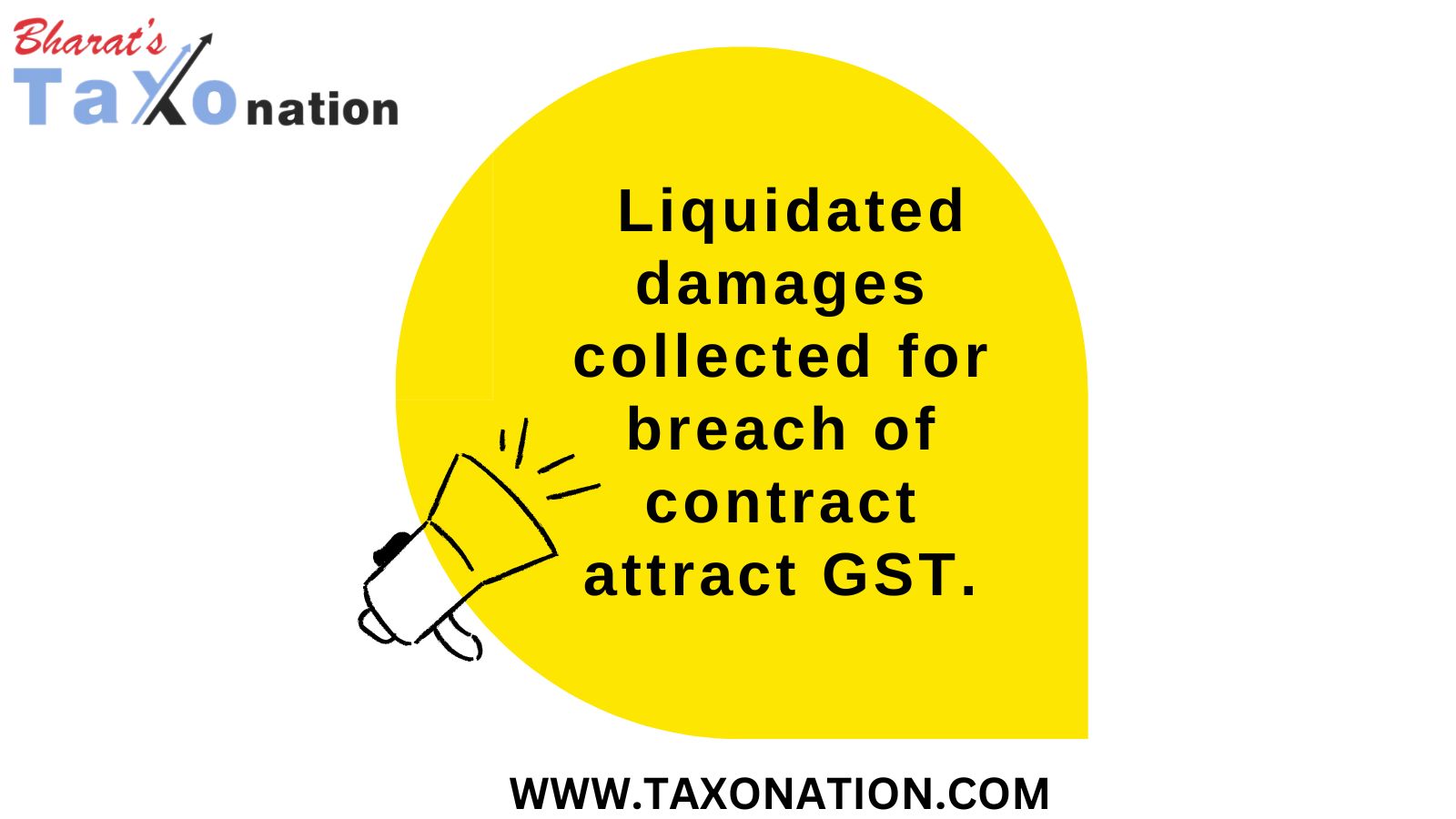
The tax implications of liquidated damages under the Goods and Services Tax (GST) regime in India. It analyzes the relevant legal provisions, industry practices, and judicial pronouncements to determine whether liquidated damages collected for breach of contract attract GST.
Introduction
Contracts often contain clauses that specify liquidated damages, a pre-determined amount payable by a party for breaching the contract's terms. This post examines the question of whether GST applies to liquidated damages collected by a company from its suppliers or contractors for delayed deliveries or non-performance of services.
Background
The CGST Act (Central Goods and Services Tax Act) forms the bedrock of the GST regime in India. It defines "supply" as any activity involving the sale, transfer, barter, or provision of services or goods undertaken for consideration in the course of business. Schedule II to the Act further clarifies that "agreeing to the obligation to refrain from an act, or to tolerate an act or situation, or to do an act" constitutes a taxable service.
Arguments for GST Applicability
Arguments Against GST Applicability
Conclusion
The applicability of GST on liquidated damages remains a debated topic. While some judicial pronouncements under the service tax regime supported GST, recent CBIC clarifications suggest a different approach. Businesses should stay updated on further developments and consult tax professionals for specific guidance.
GST Case law Transmission Corporation of Andhra Pradesh Limited
Citation-2024 TAXONATION 1446 (ANDHRA PRADESH-AAR)
CLICK HERE TO READ FULL CASE LAW
OR
SUBSCRIBE GST E-LIBRARY (INDIA'S HIGHEST GST CASE LAW DATA)
FOR MORE UPDATE ON GST/ IT JOIN OUR FREE WHATSAPP GROUP BY CLICKING ON THIS LINK https://chat.whatsapp.com/C8VB6F6VHme3A061UDQKhj
Comment: